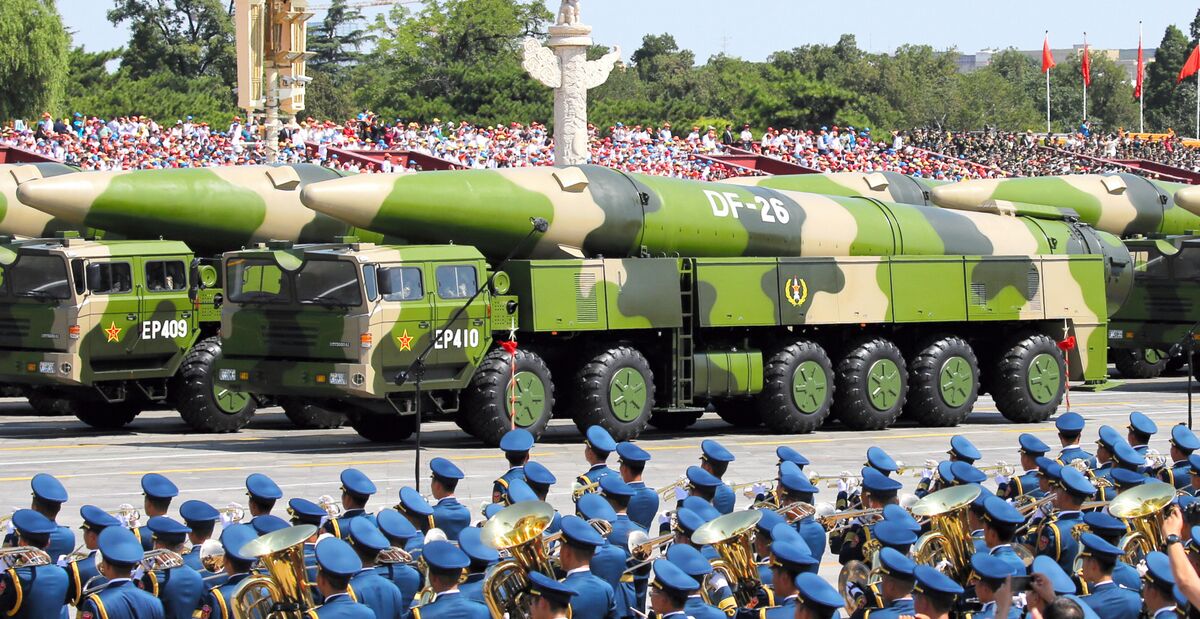
China deployed new ballistic missiles last year capable of delivering nuclear warheads to ground targets in the Western Pacific, the Pentagon said.
The intermediate-range Dongfeng-26 rockets could also be used for conventional strikes against ships in the region, the U. Department of Defense said in its annual report on China’s military. The deployment has been anticipated since at least September, when the missiles were displayed during a military parade hosted by President Xi Jinping.
The weapons represent China’s latest strategic advancement after two decades of budget increases that turned it into the world’s second-largest military spender. The modernization drive, which has focused on expanding China’s air and naval reach, is challenging more than 70 years of U. military dominance in the Western Pacific.
In 2016, Xi also began a sweeping structural overhaul of the military that saw the elevation of China’s rocket force to a branch equal with the army, navy and air force. The DF-26 joins an arsenal that includes DF-21 “carrier killer” missiles.
The report confirmed that China’s Jin-class submarines are now equipped with JL-2 submarine launched ballistic missiles, boosting its sea-based nuclear deterrence. The Pentagon has been predicting since at least 2014 that China would carry out patrols of the submarines with the missiles aboard.
Taiwan, Drones
The Pentagon report noted several security developments regarding China, including cooling relations with Taiwan, drone sales to Pakistan, the construction of a military base in Djibouti in Africa and the continued use of “low-intensity coercion” tactics in the disputed South China Sea.
The report comes days after U. Defense Secretary James Mattis attended a security forum in Singapore and warned China against actions that “impinge on the interests of the international community, undermining the rules-based order that has benefited all countries.”
Senior Colonel Zhao Xiaozhuo, a member of China’s delegation, said during the event that “China wants to use diplomatic and peaceful means, but not military force” to settle differences. Beijing has opposed the deployment of a U. missile shield in South Korea to defend against attacks from North Korea, in part because it says it could be used to counter China’s capabilities.


0 comments:
Post a Comment